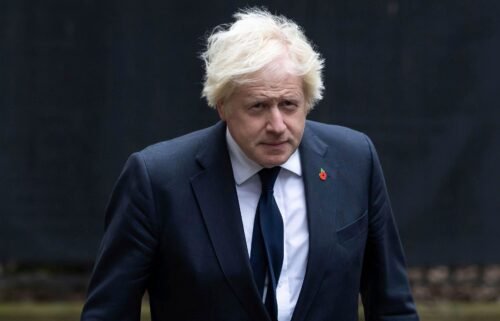Is Brexit (really) done and what happens now?
British citizens can breath a sigh of a relief this Christmas, as months of fraught negotiations with the European Union have finally resulted in a trade agreement, avoiding a no-deal crash out in just a few days. So is Brexit really done and dusted?
As ever with Brexit, there are numerous different ways to interpret that question. Officially, Brexit was done on January 31, 2020, when the UK formally left the European Union and entered the transition period, which is set to expire at the end of this year.
Although Brexit had happened, the transition period meant that the UK remained in the EU’s orbit in order to prevent an abrupt end to trade between the two.
For Brexiteers, this meant that the UK had only left in name and the future relationship — the trade deal which has been agreed on Thursday — would have to ensure far greater sovereignty for the UK.
Throughout the negotiations, hardline British Euroskeptics argued that the EU was trying to trap the UK into remaining in its orbit on a more permanent basis and heaped pressure on the government to negotiate as pure a Brexit as possible.
The Christmas Eve deal means that this debate is essentially over. There is, in the immediate term, nothing left to argue about and no appetite to enter into further talks.
As Ursula Von Der Leyen, President of the EU Commission, said after the deal was agreed, “we want to leave Brexit behind.”
However, she also shone a light on what difficulties could still come in the following years.
What happens now?
Von Der Leyen mentioned the legal procedure that the EU had to launch against the UK after Brussels believed the government in London had breached part of the first Brexit deal agreed last year.
After the tensions over the past year, it is almost inevitable that the EU will heavily scrutinize whether the UK is sticking to the terms it has signed up to in the deal. If that reaches the point of instructing lawyers, then Brexit has been such a hot-button issues it is highly probable debates around sovereignty will return.
However, this deal is likely just the starting point for what will evolve into a new relationship.
The UK is still a European nation and it is inevitable that issues will arise on which it needs to work with Brussels. On some of those issues it will want to go its own way, on others it won’t.
EU membership was about far more than the trade of goods. And the divisive nature of Brexit means that there will always be a political argument for the UK work more closely with Europe in areas beyond trade. The Covid-19 pandemic has proved a good example of how cooperation with the EU on procurement of PPE or medical equipment, for example, can be advantageous. Each new issue will create political tension between Euroskeptics and Europhiles.
It’s extremely likely that in the coming months British businesses will push the UK government to look at a more comprehensive agreement on financial services and data adequacy, which would be to the advantage of the UK’s large financial and professional services sector.
Brexit might be over, but the UK cannot escape its geography. As the two partners happily drift into their new roles on the world stage, it is inconceivable that they would be able to ignore one another as they do so.
This story has been updated.



